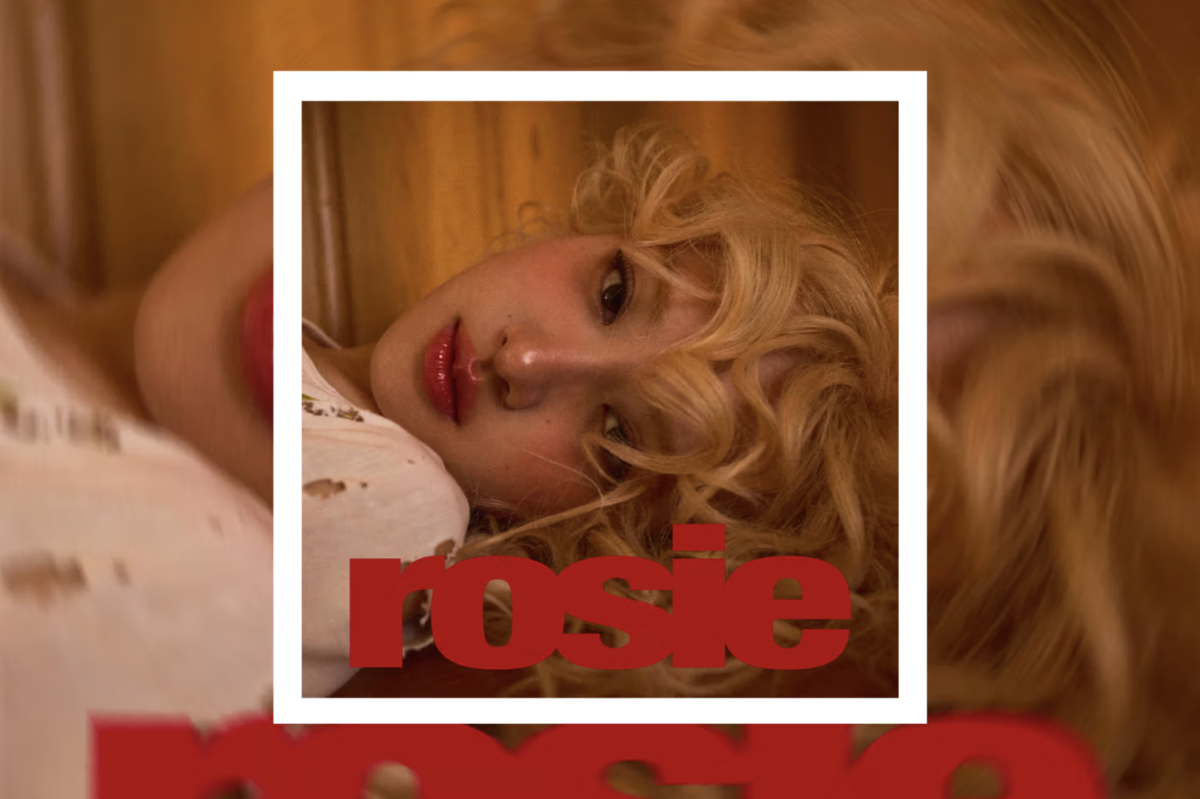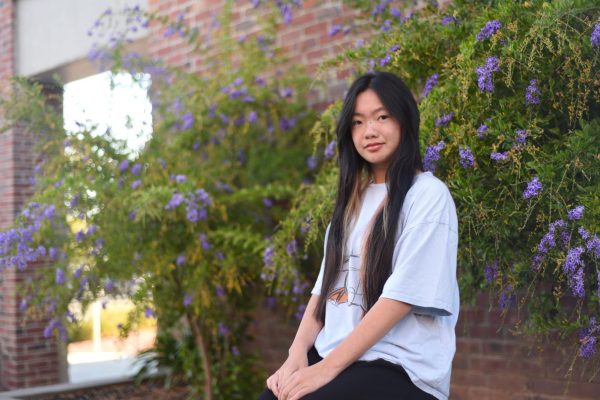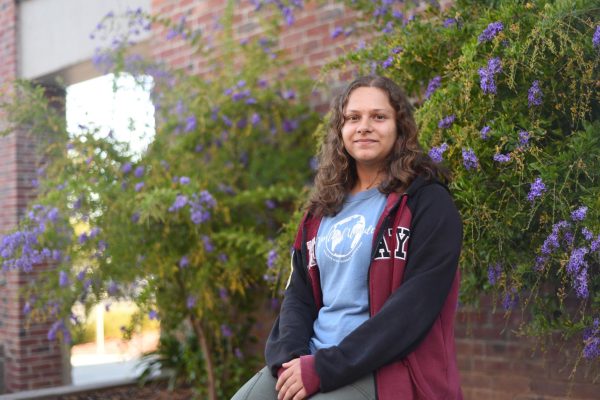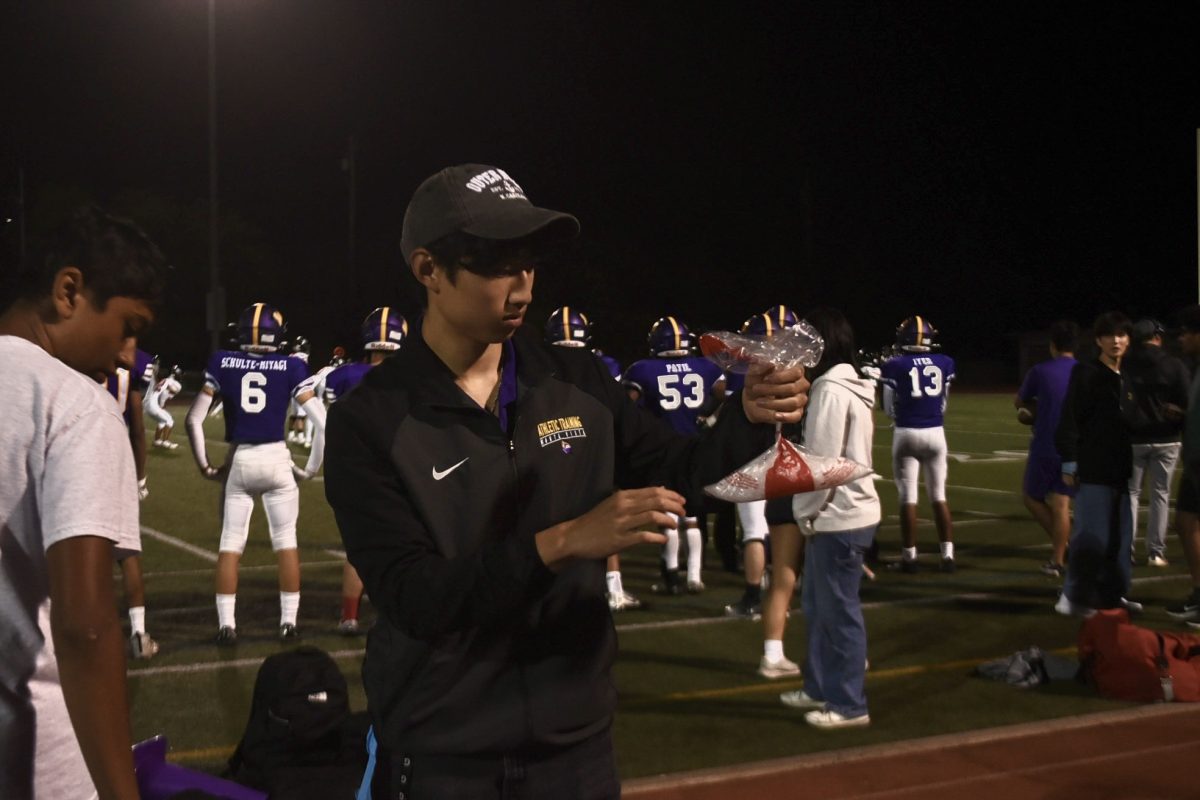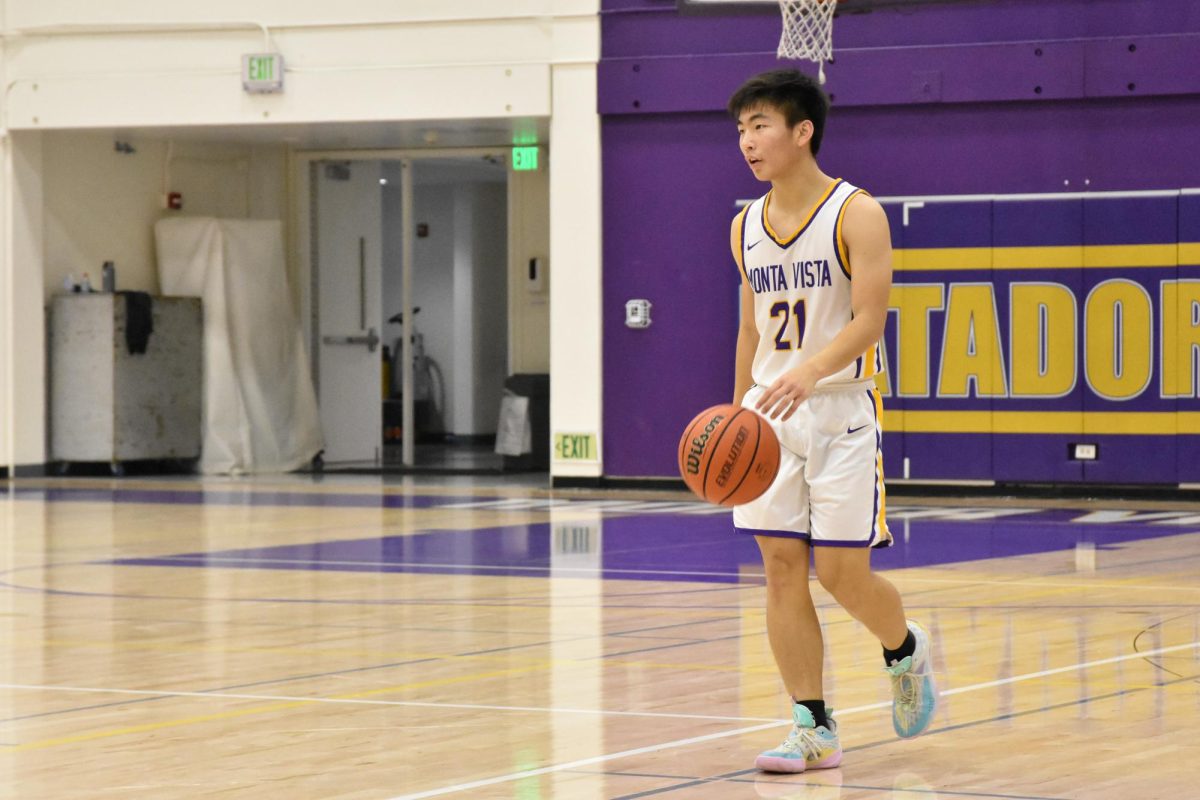With the grainy, sepia-toned visuals of the 2000s, Rosé, a member of the South Korean girl group Blackpink and now solo artist, frolics through a mansion with a male actor, acting out a toxic relationship to the lyrics of her song “toxic till the end” in the music video for the track. “toxic till the end” was the title track of her highly-anticipated debut album “rosie” that released on Dec. 6, 2024, following the pre-release of singles “APT.” on Oct. 18 and “number one girl” on Nov. 22.
Featuring 12 songs, including the two pre-releases, “rosie” was Rosé’s first album after leaving her former company, YG Entertainment, under which she initially released “R” as her solo debut. “rosie” was promoted as a vulnerable dive into Rosé‘s experience with a past toxic relationship, and ‘APT.,’ Rosé’s first pre-release featuring Bruno Mars, reached new audiences beyond Rosé’s established fanbase from her time in Blackpink. The success of “APT.,” which topped the global charts for more than eight weeks, set expectations and grew anticipation for the full album. However, despite the album’s nostalgic sound and great vocals, ‘rosie’ fails to stand out among the other roses in the field.
As a former member of Blackpink, Rosé is renowned as Korea’s “golden voice” and has been celebrated for her vocal prowess. As expected, she delivers powerful and soulful vocals in “rosie,” staying within her comfort zone with high notes and buttery-smooth delivery, while also experimenting with more raspy tones on the tracks “stay a little longer” and “not the same.” This is a refreshing deviation from her clean execution, the usual criteria for K-pop. Her emotional delivery paired with her unique tone is a positive and notable highlight in this album.
However, while “rosie” showcases Rosé’s undeniable vocal talent, it struggles to fully capitalize on her strengths. The vocal highs almost seem overbearing due to the album’s sometimes lackluster instrumentals that fail to match the intensity of her performance. Tracks like “call it the end” and “too bad for us” feature quiet and subdued instrumentals that never build up to anything, creating a sense of imbalance. Moments where the vocals dip for dramatic effect fall flat because the arrangement doesn’t follow suit, making some tracks feel incomplete. Much of the album feels like it was studio recorded in one sitting before having a quiet melody slapped in the background for the sake of it, lacking the polish and depth needed to stand out.
The synth, vocal effects and overall vibe of most of the album’s songs are reminiscent of 2010s pop, playing into the nostalgic sound of Gen Z’s childhood. Tracks from “rosie” have been compared to songs of popular artists, particularly Taylor Swift and Avril Lavigne. For example, the echoing backing vocals in the chorus and melody of Rosé’s “3am” and “two years” is reflective of many Taylor Swift songs, like “Welcome to New York,” as are the guitar and drum instrumentals. Her title track “toxic till the end” follows some of Avril Lavigne’s title track formulas, with an energetic and grungy pop-rock sound like in “Complicated” and “Girlfriend.”
This reflection of the 2010s pop vibe helps set a cohesive theme for the album — that is, it would have if all of the songs actually stuck to the theme. Instead, 2010s-pop-like songs are mixed with a smattering of ballads and even an afrobeats-esque song, “drinks or coffee.” Not only is “drinks or coffee” an abrupt change of pace within the album, its bland lyrics and clean vocals feel out of place over the lively beat.
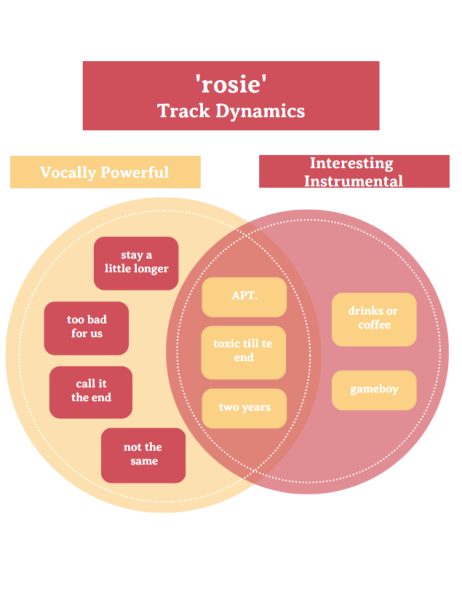
The album’s lyricism is similarly inconsistent. While Rosé shows a few examples of good writing, such as “His favorite game is chess / playin’ with the pieces in my chest” from “toxic till the end,” they are too often surrounded by forgettable or overly simplistic phrases. For instance, the phrase “I just saw a red flag” and the uninspired list, “Ex, boyfriend, lover, friend, the one, the one that got away,” don’t achieve the emotional resonance her voice deserves. The album suffers from overly vague and general lyrics. In a promotional video for “number one girl,” Rosé displays her attempt to connect universally with her caption “this is for every girl (and boy),” which feels at odds with the vulnerability expected in a deeply personal ballad. By trying to appeal to everyone, she misses the opportunity to deliver the intimate moments that could have made it more compelling.
However, the album does have its gems. Tracks like “APT.,” “two years” and “toxic till the end” stand out for their creative musicality and strong production quality, while also showcasing Rosé’s commendable ability to emulate nostalgic styles. These songs strike a better balance between her strong vocals and more interesting instrumentals rather than just a piano or guitar melody. Production choices like the addition of reverbs, echoes and vocal layering elevate the listening experience.
Tracing Rosé back to her roots in the K-pop industry, it’s also impressive that she released a full-length album with 12 tracks, most of which are around three minutes long — one even four minutes. This is a notable achievement, especially given the current trend in the K-pop industry of releasing more mini-albums and producing songs that are only about two minutes long and often missing a bridge. Coupled with Blackpink’s history of releasing comebacks only every two to three years, many fans are praising her for taking a bold and innovative step away from the K-pop industry’s restrictive norms of limiting their artists’ creativity and creating something to call her own.
Although Rosé’s achievements as a solo artist are impressive, “rosie” is a showcase of her vocal ability but little else. She is able to further secure her reputation as a vocal powerhouse, but the underwhelming instrumentals and mediocre lyricism leave only her voice to carry the weight of an album. In the end, “rosie” feels less like a fully realized masterpiece and more like a rough draft waiting to bloom.
RATING: 3/5




